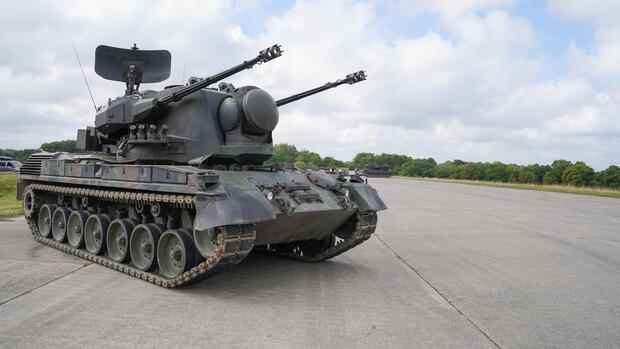But the supply of ammunition falters. Marcus Keupp, military economist and lecturer at the ETH Zurich Military Academy, warns in an interview with the Handelsblatt: “The historical stocks of cheetah ammunition are slowly being used up.”
There are only larger stocks in Switzerland. The background: The Cheetah is a German-Swiss co-production. The German group Krauss-Maffei was responsible for series production from the 1970s. The 35mm anti-aircraft guns were developed by the Swiss concern Oerlikon Contraves, which was later acquired by the German concern Rheinmetall.
Due to the development history, Switzerland has the know-how for the production of cheetah ammunition as well as larger stocks. However, Ukraine does not come close to these stocks. The export of weapons or ammunition to war zones is prohibited by law in Switzerland. The reason for this is Switzerland’s neutrality, which is enshrined in the federal state constitution.
Top jobs of the day
Find the best jobs now and
be notified by email.
For the export of ammunition that was produced in Switzerland and that is in German stocks to third countries, Germany must obtain a permit from the Swiss authorities. If the destination country is Ukraine, Switzerland has always rejected the export request. A complaint by the German Defense Minister Christine Lambrecht (SPD) to the competent Federal Department of Economics was also unsuccessful.
Initiative against adopting EU sanctions
While Switzerland’s attitude met with little understanding in Europe, the discussion about the taboo on arms exports to war zones in Switzerland was quickly over. The chairman of the Christian Democratic party “Die Mitte”, Gerhard Pfister, had campaigned for a relaxation of the ban. With a view to Switzerland’s position in the Ukraine war, he spoke of “aid not rendered”.
>> Read here: Why Russia isn’t regaining air sovereignty over Ukraine
But neither the liberals nor the far left and far right political spectrum want to support a relaxation of the export ban. Federal President Ignazio Cassis, who is responsible for foreign policy and from the liberal FDP party, recently said that military aid for Ukraine would be tantamount to a revolution. “These are red lines, we can’t do that.”
At the end of October, the right-wing conservative SVP party even launched an initiative to “save neutrality” in Switzerland. If it prevails, not only ammunition export would be unthinkable. Even the assumption of EU sanctions against Russia by Switzerland would then be up for discussion.
Military economist Keupp therefore advocates more pragmatism in the discussion. “As a neutral nation, Switzerland cannot export the ammunition. And Switzerland cannot give up its neutrality.” Nevertheless, the country can pass on its expertise. “Switzerland could invite foreign engineers, share technical information – and thus help someone outside the country to continue building the ammunition.”
The technical effort is manageable. Because the cheetah is based on proven technology from the 20th century. 35mm anti-aircraft ammunition is used, which has hardly changed since the Second World War and which does not require complex target-seeking systems. “In principle, any major armaments company can produce this ammunition,” Keupp is convinced. “Until now, however, it was not economically attractive for the manufacturers.”
Effective remedy against kamikaze drones
But the anti-aircraft system has proven itself in the Ukraine: “The Gepard tanks have proven to be particularly effective against the Iranian Shaheed 136 drones,” says Keupp. Russia uses the cheap Iranian drones as kamikaze aircraft that can transport up to 40 kilograms of explosives.
They are an important tactical tool for the Russians to hit critical energy infrastructure in Ukraine. For the cheetah, however, they are cannon fodder. Keupp says: “These drones fly relatively slowly, they are easy to see. Cheetah archers can hit them without expensive optical targeting.”
This image is said to show the remains of an Iranian drone in Ukraine.
(Photo: AP)
However, the Ukraine needs ammunition for this: The armaments group Rheinmetall recently took over the Spanish competitor Expal Systems for 1.2 billion euros. The Spaniards produce, among other things, ammunition for artillery systems and anti-aircraft guns. This should triple Rheinmetall’s production capacity.
With the support of Swiss engineers, further production capacities could be developed more quickly. When asked by the Handelsblatt, the Federal Department of Economics did not want to comment on whether a technology transfer is compatible with the neutrality law.
From the point of view of military economist Keupp, the war in Ukraine has shown that the production of ammunition for anti-aircraft tanks should also be worthwhile in the long term. It is clear that the air defense of the future will have to fight drones in particular.
More: The dispute over ammunition deliveries to Ukraine is dividing Swiss politics
